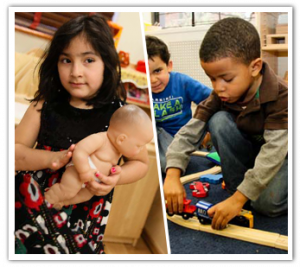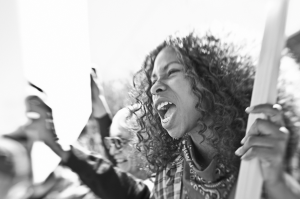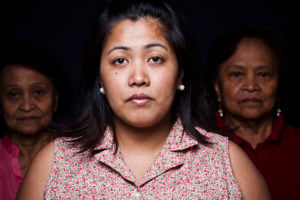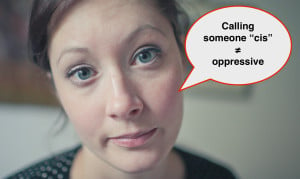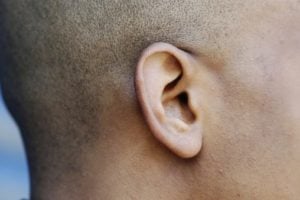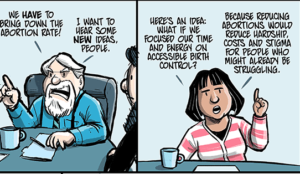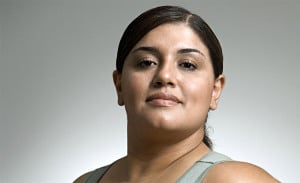
Source: Celeb Mobile Wall
I recognize you. Before I write anything else, I want you to know that I recognize you.
It is never easy feeling abandoned – thrown away like trash – for being who you are. In fact, it’s often downright unbearable.
We are a diverse group of people who have survived beatings, false imprisonment, losing friends and lovers to murder and AIDS complications, homelessness, poverty, sexual assault, abandonment, and deportation, among many other injustices.
We have experienced the power of marches and protests, the victory of legal protections, and the increase in volume of our voices.
You are part of that lineage and no one can take that away from you.
But I’m not here to tell you that “it gets better.”
I know that that mantra doesn’t cut it when you don’t know where you’ll get your next meal, when you’ll next be able to shower and change clothes, or who you’ll turn to for support when those who are supposed to love you don’t understand you (and sometimes use that ignorance to harm you).
While some factions of society would have us believe that the “strongest” people don’t need acceptance or encouragement, the truth is that needing validation is a part of the human experience.
It is a part of what makes middle and high school so difficult for adolescents across the country and around the world. It is why it is hard to be ourselves sometimes – we just want to be liked by someone (even those who pretend not to care).
Not receiving that validation and acceptance can lead to low self-worth, acting out, self-harm, and other mental and behavioral health issues.
However, one of the most painful experiences to endure is rejection from one’s own family. While biological family is not the only strong (or important) bond that exists, it is an essential part of our society – it means a lot for many people.
LGBTQIA+ people, youth in particular, are by far one of the marginalized groups most affected by family rejection.
I know from experience that rejection comes in many forms. While the recognizable manifestation of it, particularly for queer and trans people, is being kicked out of one’s home or enduring abuse, it can also be as subtle as the erasure and lack of acknowledgement of one’s identity.
The recent death of Leelah Alcorn is a heartbreaking reminder that resources for us – youth, older people, trans people, queer and trans people of color, and people in suburban and rural areas in particular – are seriously lacking. It is a sobering reminder that oppression has tangible consequences.
Here are a few strategies we can use to help us cope with family rejection – resources and tips that can sustain us until we can carve out our own paths.
Find Physical or Virtual Safe Spaces
For me personally, finding a campus organization for LGBTQIA+ people of color during my sophomore year, several months after coming out to myself as bisexual, was an indescribable safety net.
The first place that validated me, however, was an online forum for bi* and questioning women. I spent months there before I even attempted to venture to any campus meetings.
As I have previously stated, resources for LGBTQIA+ people can be woefully lacking depending on where you live (country, state/province, region, urban, suburban, rural, etc.), but the Internet has opened up doors that have drastically increased the access that people have to potentially life-saving information and community.
But in and outside of the Internet, we have a rich and diverse history that is a testament to our ability to survive – and we could not have done so without the building of our chosen families.
My first true chosen family was that small group of queer people of color at Rutgers, although the online space definitely felt like family as well.
However, I would not be who I am today without that college experience – the times we spent hanging out, talking about our sometimes difficult, sometimes joyous experiences with family, lovers, school, and friends, and so much more.
Our community is full of chosen families – from the ballroom and voguing cultures that many Black and Latinx queer and trans people have called home (sometimes literally) to college buddies, activist spaces, and even living together in queer collective housing to help ease the burden of living in a society that marginalizes us.
In addition to this history, there are websites that allow people to search for LGBTQIA+ centers in their area, such as the LGBT Community Center in New York, the LGBTQ Center in Newark, New Jersey, the William Way LGBT Community Center in Philadelphia, Pennsylvania, and the Pride Center of San Antonio, Texas, among many others.
There are secret and public Facebook groups and other social media sites that have become virtual safe havens for LGBTQIA+ people, such as the Instagram accounts of transgender activist and writer Janet Mock and transgender model Isis King.
There is also a vast amount of fiction and non-fiction books created by us and for us that has affirmed and reaffirmed people for decades, like Black lesbian author Audre Lorde’s Zami: A New Spelling of my Name and Sister Outsider: Essays & Speeches and Janet Mock’s memoir Redefining Realness, among many others.
There are incredible films out there, including Pariah, The Kids Are All Right, Paris Is Burning, Shortbus, But I’m a Cheerleader, Rent, and Transamerica, among many others.
Take advantage of the work that has come before you. Survive in the spaces that have been built for you. Thrive in the circles of friends, mentors, and role models who will be there for you – even when your biological family will not.
If it’s not safe for you to search for these things at home, you can find a local library with Internet access and build your community there.
Self-Affirmation
In a society that constantly devalues, erases, and ridicules us as LGBTQIA+ people, dealing with family rejection can double the burden of invisibility and shame.
The haven that people around the world seek refuge in from the trials of life has had its foundation ripped from under you. That is hard, whether you’re being physically beaten, you’ve been kicked out of your only home, or you’re simply expected to pretend to be someone you’re not.
It is of utmost importance that you remind yourself – daily – that you are worthy of existing as you are.
The way you move, the way you communicate, the clothes you wear, the activities you like, the words you use to express your identities – they are all okay.
I can anticipate your response through the computer screen. “This all sounds good, but how do I start a process like this? Will it even work?”
It can be difficult to work your way through this process when you have been so beaten up and broken down that it seems impossible to get to a point of saying loving things to yourself – let alone believing them. Of course, this is part of why the first step is so important.
When I say that without those affirming spaces I would not be who I am today, I mean that thing!
Although I am very grateful that they exist, you don’t need a fancy schmancy deluxe “Center” to find community.
Your physical or virtual safe space could simply be a small group of people – friends and mentors who recognize you for who you are and build you up when you’re unable to encourage yourself.
But once you get to that point, sustaining that love for yourself becomes ever the more important.
How we affirm ourselves may differ for each person, but it could be something like writing to yourself: “Dear X, you’re so awesome. Remember that time when you came out to your senior class? You felt so confident and badass. And your queer fashion sense is unmatched.”
It doesn’t have to sound like Langston Hughes or Toni Morrison. Just write what you feel (or write how you want to feel about your identity as you grow).
It could be as simple as looking in the mirror and repeating a mantra once or twice a day (morning and/or night). I personally like “I am enough.” I don’t need to be anything more or less than what and who I am. Neither do you.
Stand in front of a mirror or in a private space and remind yourself of why your identity is special. “Being who I am is okay because James Baldwin came before me” or “Being who I am is okay, and Laverne Cox is proof of that.”
Channel your queer and trans forerunners and fill yourself up with their strength, confidence, talent, and love.
Dance around your room to your favorite song – whatever feels silly, whatever is in the moment, and just enjoy being your fabulous self.
If you like to sing, write an empowering tune that celebrates who you are as a trans person, non-binary person, bisexual or pansexual person, asexual person, lesbian, or any other expression of queerness.
If it is safe to do so, you can even record it and post it on YouTube. You’d be surprised at how many people will flock to you. That’s because you are not alone. By affirming yourself, you can even affirm others.
These actions matter because they become a sort of buffer to the daily assaults of the everyday oppression that we face, especially if you have more than one marginalized identity.
When you have nowhere to retreat to, no voice that tells you how awesome and important you are, you can fall victim to the violence of oppression. And I, personally, do not want that for you or for myself.
Oh yes, dear reader, as a (very) poor, fat, Black bisexual woman with multiple disabilities, I must practice self-love regularly.
It takes many forms for me, including cooking/making sure I feed myself, jamming to Stevie Wonder and Hanson (yes, Hanson), chatting with friends, and retreating into movies and Criminal Minds.
(Matthew Gray Gubler is bae, and he ain’t even know it.)
No matter what you do, be sure to love on yourself daily. If you have no one else in your life to tell you that you are worthy of living, worthy of love, worthy of success, you can say it to yourself.
Enforcing Your Boundaries
While you’re becoming more in tune with your awesomeness, it is also important that you set up boundaries. Know what you will and will not tolerate from your family and others close to you if you still live with them or have regular contact.
Here I will readily note that for some people, particularly youth who are minors or otherwise dependent on parents or guardians, setting and enforcing boundaries can be an almost impossible task.
Telling someone what you will or will not allow in your presence – someone who pays the bills, pays your tuition, maintains the roof over your head, or otherwise has power over you – is intimidating.
Part of the reason for this is that we live in a culture that does not consider youth to be people with their own valid thoughts, feelings, ideas, and emerging identities. This is a symptom of adultism.
Before you proceed with this step, remember that it is okay to put your safety and welfare first.
Think about what your needs are. What are things that emotionally trigger you and take you to a dark place, time, or mentality? What are the words or behaviors that you absolutely must avoid for your mental safety?
Once you’ve taken an inventory, lay down the rules. If you decide that you absolutely will not take people deliberately using the wrong pronouns, decide what the consequence will be (you leaving the space, for example).
If you decide that people get one warning and then you will leave, you can say (in your own way) “I’m sorry, but I explained to you that that is not okay with me. You are not respecting me as a person/as a member of this family/as someone you supposedly love, so you don’t deserve my presence.”
It doesn’t have to be that dramatic (or even that articulate), but trust me, people will get the point. Actions speak louder than words.
***
I know that for the last few years, the motto of the mainstream LGBTQIA+ movement has been “It gets better.”
I wrote this piece for Leelah Alcorn, Tyler Clementi, Sakia Gunn, Islan Nettles, and the countless other queer and trans people whose lives have been taken or who took their own because of the injustices they faced. This is my way to help make it better.
For those of us who are queer and trans adults, we need to do everything we can to help make it better.
It is important that those of us with some access to privilege – such as money, visibility, and influence – don’t forget the youth or our older forerunners, who are also struggling.
Our community doesn’t have time to wait for things to “get” better, we must make it better, and that starts with you.
Donate and volunteer your time to organizations like the Ali Forney Center for Homeless LGBT Youth in New York City, support QTPOC media such as Black Girl Dangerous by donating, and learn about the issues of LGBTQIA+ people on the margins.
Our survival depends on it, my friends.
Take care of yourselves.
[do_widget id=”text-101″]
Denarii Monroe is a Contributing Writer for Everyday Feminism and a poor, fat, bisexual African-American cisgender woman with multiple disabilities in her late 20s. Denarii is a syndicated writer for BlogHer.com and an aspiring screenwriter with a passion for youth and young adults. She loves to laugh, dismantle oppression through art, and make all kinds of love. You can follow her on Twitter @writersdelite.
Search our 3000+ articles!
Read our articles about:
Our online racial justice training
Used by hundreds of universities, non-profits, and businesses.
Click to learn more






